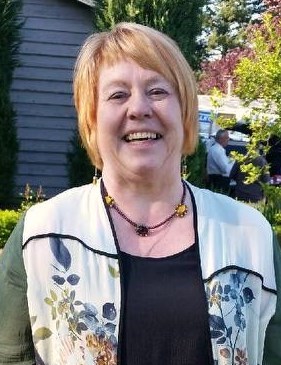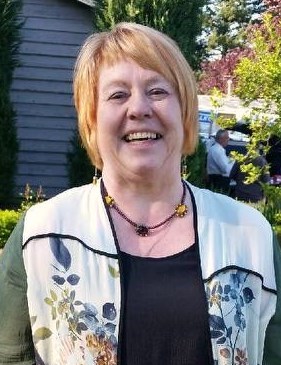Our family has a tradition of making cards for birthdays, Christmas and Easter. This year my young granddaughter decided to write a poem in her Easter card. I had expected something about chocolate and Easter egg hunts, two of her favourites. Instead she wrote a joyful celebration of creation. The images were compelling: “Plants’ patterns awake creatures.” “The constellations form a blanket for the sun”, “ferns tingle your legs in the spring breeze”, “moss that makes a pillow.” There is profound awareness in her word pictures. While born of innocence, the wisdom in her poem points to what we too easily forget, the interdependence of all creation.
We see a hint of it when tragedy hits a community and people discover how closely intertwined they truly are. This was a discovery the early Christians made after the resurrection. The apostles had experienced the distortions of isolation, but they knew they were called into something more profound. Thus, it is no surprise the early church had the practice of sharing possessions. The beliefs of this growing Christian community were that resources should be shared equally, and if one person remained uncared for it was seen as a failure of everyone.
We have had thousands of years to perfect such a model of community, it is telling that very few such communities exist today. The exceptions are Monastics – monks and nuns. They provide long standing examples of communities where similar values shape their lives. They live daily the joy and challenge of intentional interdependence.
Most of us would say the community we depend on is our family and close friends. It is with them we are most closely entwined. How does that play into to the rest of the community? What is the impact when basics such as affordable housing are disappearing?
We know people are concerned. But statistics continue to highlight the rising cost of decent affordable housing. There are groups working to create affordable housing units and an environment where such housing is sustainable. A friend refers to this as an issue of creating “housing ecology”. But if we are interdependent then what will be the long-term effects of a barely housed or homeless population on the whole?
Creative ideas have arisen in response to the need. Some are being implemented. Repurposed buildings, micro-housing, bylaw changes and possible land designated for interim housing. Yet more and more people are being squeezed out of the rental market. It is unacceptable that people are forced to continue to live in their vehicles or “couch-surf”.
It seems we have lost touch with a broader understanding of interconnectedness. Those who are unable to access stable affordable housing are our responsibility. The economic systems which continue to perpetuate extreme disparity claim they see the need. But from the perspective of “housing ecology” little weight seems to be given to the basic needs of everyone.
If we hold to the values of the early church then it is our responsibility to listen to the people groaning for justice. Otherwise our belief systems are at risk of being defined by the status quo. If things were turned upside down how would the formerly poor care for those who had been rich? Would greed drive their actions? I don’t know. I do know many of us have more than “enough” of this world’s goods. Through sharing our resources, we could create a different housing “ecology”.
If “plants’ patterns awake creatures”, what will it take to awaken us?
 The Reverend Canon Nancy Ford, Deacon, is the Anglican Director of Deacons for the Diocese of British Columbia and Deacon to the City of Victoria out of Christ Church Cathedral.
The Reverend Canon Nancy Ford, Deacon, is the Anglican Director of Deacons for the Diocese of British Columbia and Deacon to the City of Victoria out of Christ Church Cathedral.
You can read moe articles on our interfaith blog, Spiritually Speaking,



